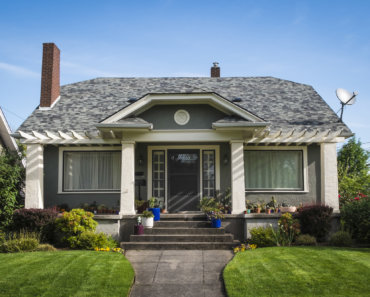It is not unusual for seniors to worry about how they will finance the rest of their lives. They are most likely retired at this age, even though some wish to remain active in the workplace.
By 2030, seniors are expected to be about 23 percent of the Canadian population and based on 2013 statistics, only 13 percent of them remain in the labor force.
Over the years, reverse mortgage in Canada has become a major option seniors leverage to fund their lifestyle.
Table of Contents
What Is a Reverse Mortgage?
The name, reverse mortgage, might be confusing, but if you are familiar with a typical mortgage, it should be easier to understand.
It is a type of mortgage whereby you are offered a loan with the equity in your home as collateral.
It does not require a monthly repayment; instead, you get paid monthly, depending on your arrangement with the lender.
Repayment is only due the day you stop living in the home. This might be because you decided to sell, moved to a care home, or dead.
Eligibility
A reverse mortgage in Canada is only available to senior homeowners at least 55 years old.
It is also mandatory that the home is your primary residence which means you live there most of the time the year, at least six months.
Some lenders may also require you to get independent legal advice on the implications of a reverse mortgage before you are considered.
Fees Associated With a Reverse Mortgage
A reverse mortgage comes with an interest rate. This, however, is usually higher than what a lender charges for a typical mortgage.
Its significant edge over a typical mortgage is that it does not require a minimum credit score.
Likewise, the interest rate is considerably lower than credit cards and personal loans.
Generally, although they might vary depending on your lender, fees associated with reverse mortgage include:
-
Home appraisal fee
A home appraisal is an expert’s estimation of your home value based on the current market trends. Factors such as the location, age of the home and its condition are considered.
On average, it costs about $300 to $500 but might be more depending on your location. The lender would be the one to hire a licensed third-party appraiser, even though you are the one paying for the service.
The home appraisal checks the interior of your home to ascertain the number of rooms, bathrooms, bedrooms, square footage, quality of building materials and foundation type.
For the exterior, the appraiser will check the neighborhood, garage, lot size and appurtenance.
-
Setup fee
Lenders charge a setup fee to cover the expenses incurred during your loan processing, underwriting and closing.
On average, this cost between $1,000 and $1,800, although may vary depending on the lender.
-
Cost of independent legal advice
Some lenders encourage you to get legal advice and representation from a lawyer.
If preferred, they might recommend the service of any of their trusted partners.
They should cost around $300 to $700.
-
Prepayment penalty
The loan term is scheduled to be throughout your lifetime, but if you intend to repay it, you may be charged a prepayment penalty.
The fee is usually calculated based on the amount you prepay, the loan age, and the principal outstanding balance.
Your lender decides the fee; therefore, discuss it before you agree to the loan terms.
Some lenders might reduce your prepayment penalty by half if you move out of the home due to your health.
You may not be required to pay some of these fees upfront. They can be added to the total balance of the loan.
How To Calculate Reverse Mortgage
Lenders evaluate how much to loan you based on your age, location, home appraised value and property condition.
For an easy and real-time estimate, you may use an online Reverse mortgage calculator that is frequently updated with the factors lenders use in assessing loans.
How To Get a Reverse Mortgage Loan in Canada
Two famous financial institutions offer reverse mortgages in Canada. HomeEquity Bank offers the Canadian Home Income Plan (CHIP) across Canada. Equitable Bank reverse mortgage offers are only available in a few urban areas.
However, there are other mortgage brokers scattered across the nation. You only need to research to find the best in your area.
Do not go with the first reverse mortgage offer that comes your way. Check around, make a shortlist and compare their prices and terms to settle for the best.
The cooling-off period allows you to cancel a reverse mortgage contract in case you change your mind, especially if you want to wait till later before going through with it.
Meanwhile, it is usually between 10 to 20 days after you agree and signs the contract.








